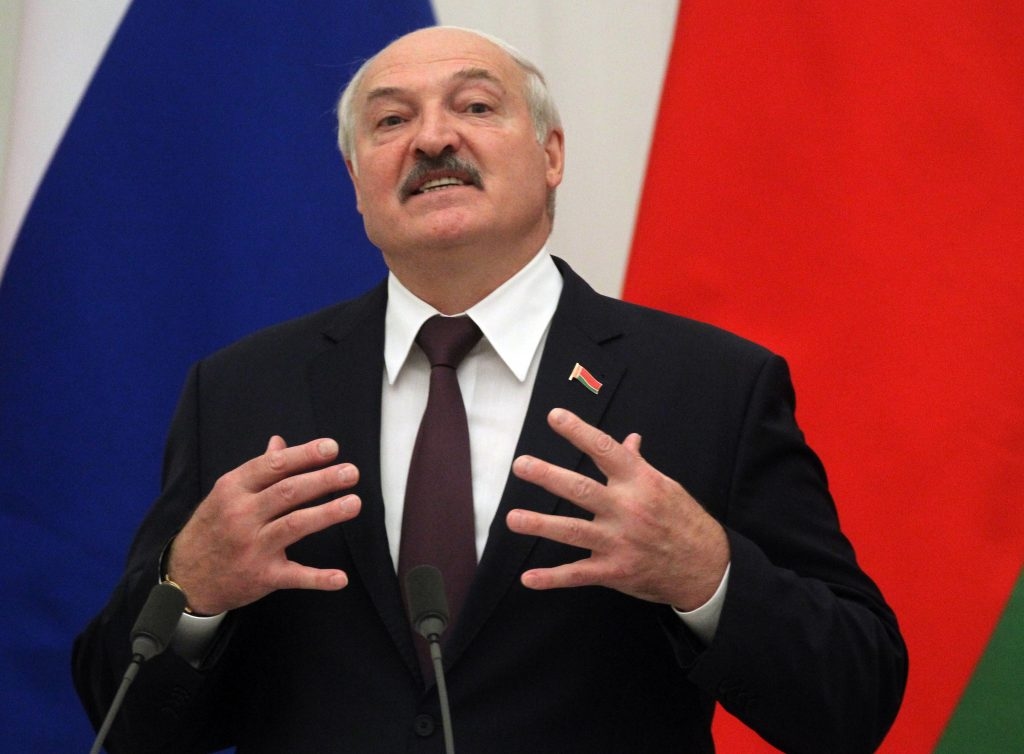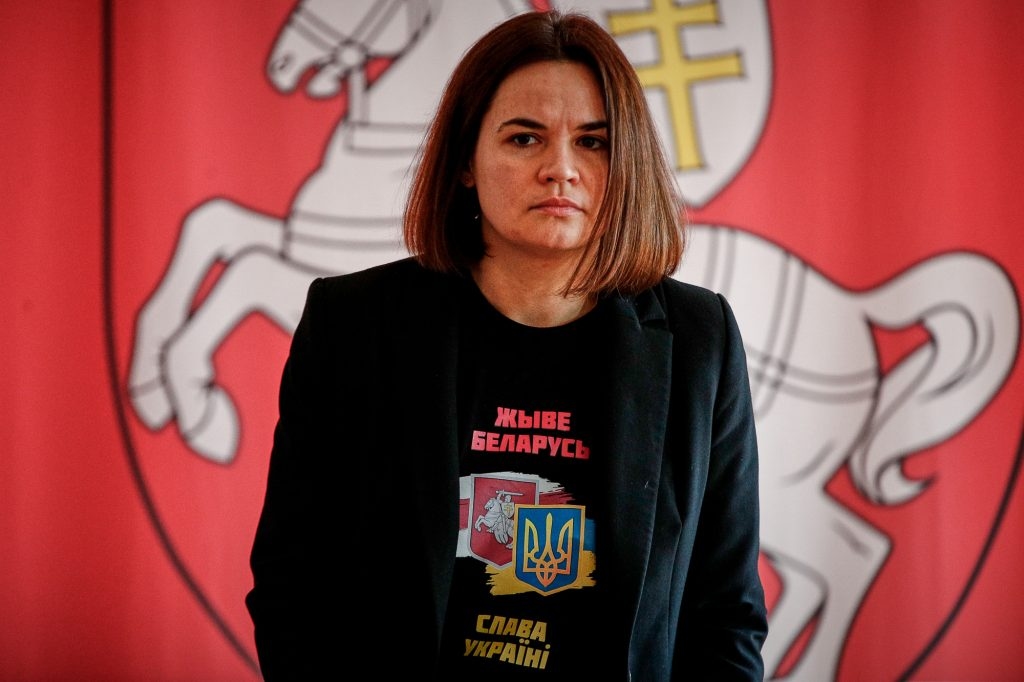Belarus Weekly: With troops at the border, broadened use of death penalty, and attacks on books and culture, Belarus cements its dystopian image

Unable to overcome a domestic political crisis in the country caused by the fraudulent 2020 presidential elections, the regime of Belarus dictator Alexander Lukashenko turned his country of 9.5 million people into a grim place.
Furthermore, Lukashenko’s regime, held afloat by Russian President Vladimir Putin, became a co-belligerent in Russia's war against Ukraine.
However, as many in the country do not agree with the country's participation in the war, the Kyiv Independent is launching a new weekly roundup that will help explain what is going on in Belarus.
To receive the Belarus Weekly newsletter subscribe via this LINK.
Russian Iskanders at the border
Belarusian monitoring group, Belaruski Hajun, is reporting the movement of Iskander short-range ballistic missile systems towards the Ukraine border. These missile systems have not been seen in Belarus since the withdrawal of the majority of Russian troops from northern Ukraine.

Additionally, Ukraine’s Armed Forces have reported two Tochka-U missile divisions seen in Belarus.
Lukashenko’s saber-rattling continues
Belarusian military continues its sudden military drills as "a response to NATO.”
Belarus Security Council Secretary Alexander Volfovich said, in a comment to a local TV station, that Belarus is surrounded by enemies and that Ukrainian subversive and reconnaissance groups regularly enter Belarusian territory. No proof of such statements was provided.
Belarusian Kastus Kalinouski battalion fighting for Ukraine expands
The Belarusian battalion fighting as part of the Ukrainian army against Russia announced it has now enough people to be considered a regiment that will include two battalions. While the regiment inherits the name of Belarusian national hero Kastus Kalinouski, battalions are to be named after two Belarusians killed in action in Ukraine - Pavel “Volat" and Ilya "Litvin.”
UN eyes to ease restrictions on the export of potash fertilizers from Belarus
UN Secretary-General Antonio Guterres asked on May 18 to ease sanctions in exchange for a safe rail route to export grain from Ukraine through Belarus and avoid global hunger. The proposal caused a stir among Belarus's opposition. "Lukashenko is creating a false dilemma for you,” opposition leader Sviatlana Tikhanouskaya said.
Read the Kyiv Independent interview with Sviatlana Tikhanouskaya
"Under the pretext of world hunger, he is trying to escape responsibility for terror and complicity in the war. Therefore, to return the regime the opportunity to earn money from selling potash fertilizers is to give this money to destroy Belarusians and Ukrainians.”

UN Security Council think tank Gro Intelligence stated that the rail route through Belarus will account for only 10% of the pre-war grain flow.
Lukashenko signs bill on expansion of death penalty cases
Lukashenko has signed a bill that suggests capital punishment for “an attempted terrorist act.” Human rights defenders have stated that this law is set to intimidate Lukashenko’s political opponents, who are often claimed to be terrorists by the state.
The law is effective as of May 29, and there are ongoing trials that might result in capital punishment for the accused.
Read the full story: Belarus to expand the use of death penalty. Democratic forces, rail guerrillas under threat
Trials in absentia
Additionally, a week prior, the Belarusian Parliament approved, in the first reading, a bill that is set to introduce a special procedure for trials in absentia. If passed, the law would allow initiating a criminal probe against people suspected of “crimes against the state” and those alleged of breaching national security. The suspects would later be tried in absentia. The maximum sentence in such cases is now the death penalty.
Belarusian riot police were given broader rights to use firearms
A new law, on May 18, expanded the scope to which riot police can be used by the state. Instances, when riot police can use firearms, were also expanded.
Previously, riot police were obliged to assist the police in the protection of public order on request, now they are obligated to participate directly. The law also limited the right to use weapons for self-defense. Now, firearms can be used against people, who disobey law enforcement or those who enter or leave restricted areas.
Renowned Knyhauvka publishing house searched a day after opening new store
As a result of the searches at Knyhauvka, which specializes in books about Belarusian history, over 200 books were confiscated. The founder, Andrei Yanushkevich, was sentenced to 10 days in prison, and the seller, Nasta Karnatskaya, was also arrested.
Recently, in an unspoken raid against Belarusian language and culture, the regime had suspended the activities of several Belarusian independent publishing houses: Limarius, Book Collection, Goliaths, and Madison.
Banning Orwell
The searches in the publishing house and the new store coincided with an alleged ban on the sale of George Orwell's 1984. The novel by Orwell has been among the bestsellers in the country. According to local media, state-owned bookstores were ordered to take the book off their shelves.
Belarusian Ministry of Information denies the introduction of the ban.









